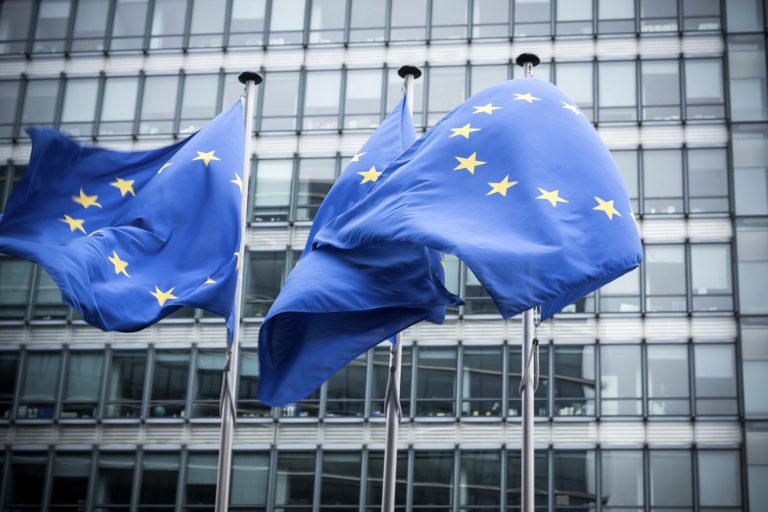A planned European Union law requiring large and businesses and financial institutions to conduct human rights and environmental due diligence should also apply to export credit agencies (ECAs), activists say.
The European Commission is currently working on a legislative proposal for mandatory due diligence which will require firms to assess the human rights and environmental impacts of their suppliers.
The initiative has strong support from the European Parliament but the Commission’s draft text has been held up twice by a regulatory oversight board that scrutinises proposed laws, according to MEPs.
ECA Watch, a network of global non-government organisations who argue for ECA reform and transparency, sent a letter to the Commission in November urging ECAs to be in scope of the proposed law.
“Active obligations from ECAs [under the law] will effectively encourage a significant number of companies to fulfil their due diligence obligations and ensure that also ECAs themselves effectively comply with the human rights and environmental obligations of the member states on whose behalf they operate,” two ECA Watch representatives wrote in the letter.
“Past experience shows that export credit guarantees are repeatedly granted for projects with serious adverse human rights and environmental consequences.”
One of the letter’s authors, Heike Drillisch from German human rights and environment initiative CounterCurrent, says that while ECAs judge projects against standards such as the UN Guiding Principles on Business and Human Rights, they may not take an interest in the companies involved and whether they are respecting human rights.
“We say that as state money is involved in export credit schemes, there should really be a heightened due diligence process in place and ECAs should be aware of not becoming complicit in human rights violations which occur in the project,” Drillisch tells GTR.
She cites projects such as the Yamal liquefied natural gas (LNG) complex in Russia, which campaigners said would harm the habitat of reindeers and the indigenous herders who depend on them. The project won the backing of the German and Swedish ECAs.
A proposed LNG facility in Mozambique is another example of an environmentally damaging project that has secured widespread backing, Drillisch argues, including ECAs from the US, Japan, Italy and the Netherlands. UK Export Finance’s support for the project was subject to a judicial review successfully brought by NGO Friends of the Earth last year.
Many EU ECAs have since announced they will end almost all support to fossil fuel projects by the end of this year.
Lawmakers want to capture non-EU firms too
A non-binding European Parliament resolution on the proposed law, adopted by 504 votes to 79, called on EU governments not to allow access to ECA support for companies that do not comply with the “objective” of the law.
The resolution also said that it should apply to large businesses and “high-risk” small and medium enterprises in the EU “regardless of whether they are private or state-owned and of the economic sector they are active in, including the financial sector”, and that all entities captured by the rules should be subject to a civil liability regime for human rights and environmental violations.
Businesses based outside the EU that serve the single market should also be made to comply with the rules, the resolution says.
Asked how likely it is that public finance and insurance bodies such as ECAs will be in scope of the legislation, Linklaters associate James Marlow says to the extent that such organisations “are public bodies and extensions of member state governments, it is less likely that they will be directly captured by any regime… on mandatory due diligence”.
However, Marlow tells GTR, to avoid reputational damage “it is possible that such bodies would be impacted indirectly as they or their government may look to align their policies and processes with stakeholder expectations and obligations” that apply to their counterparts in the private sector.
For private sector institutions, such as banks and insurers, the extent of the due diligence they will ultimately be required to carry out on their clients will depend on whether the Commission adopts a broader “value chain” approach like that advocated by MEPs, or a slightly narrower “supply chain” position.
“Under the former approach, due diligence would be required of a wider range of entities” with whom the firm has a business relationship, says Marlow, while in the supply chain scenario, “due diligence would be limited to suppliers”.
Proponents of the legislation believe that requiring EU businesses, including financial institutions, to carry out human rights and environmental due diligence will create a snowball effect whereby their clients will demand tougher standards from suppliers in high-risk jurisdictions.
In an April 2020 speech, EU Justice Commissioner Didier Reynders said: “We need to make sure that responsible business conduct and sustainable supply chains become the norm, a strategic orientation for businesses.”
The Commission’s proposal is now expected to be released in February, after two delays last year. Some MEPs attributed the delay to the EU’s Regulatory Oversight Board, which assesses all new legislative proposals.
In December last year, four MEPs blamed the delays on lobbying by business groups in France and Denmark, and requested access to the board’s opinions on the draft proposals, which are not usually published until proposals are formally adopted.
A Commission spokesperson did not respond to questions from GTR about the board’s opinions and delays to the proposal. But a Commission official, who declined to be named, says preparations on the proposal “are in full swing”.
“It is important to ensure a comprehensive preparation of this proposal, taking into account the various aspects and striking a balance between the diversity of views of the stakeholders,” they say. “Quality goes before speed.”







